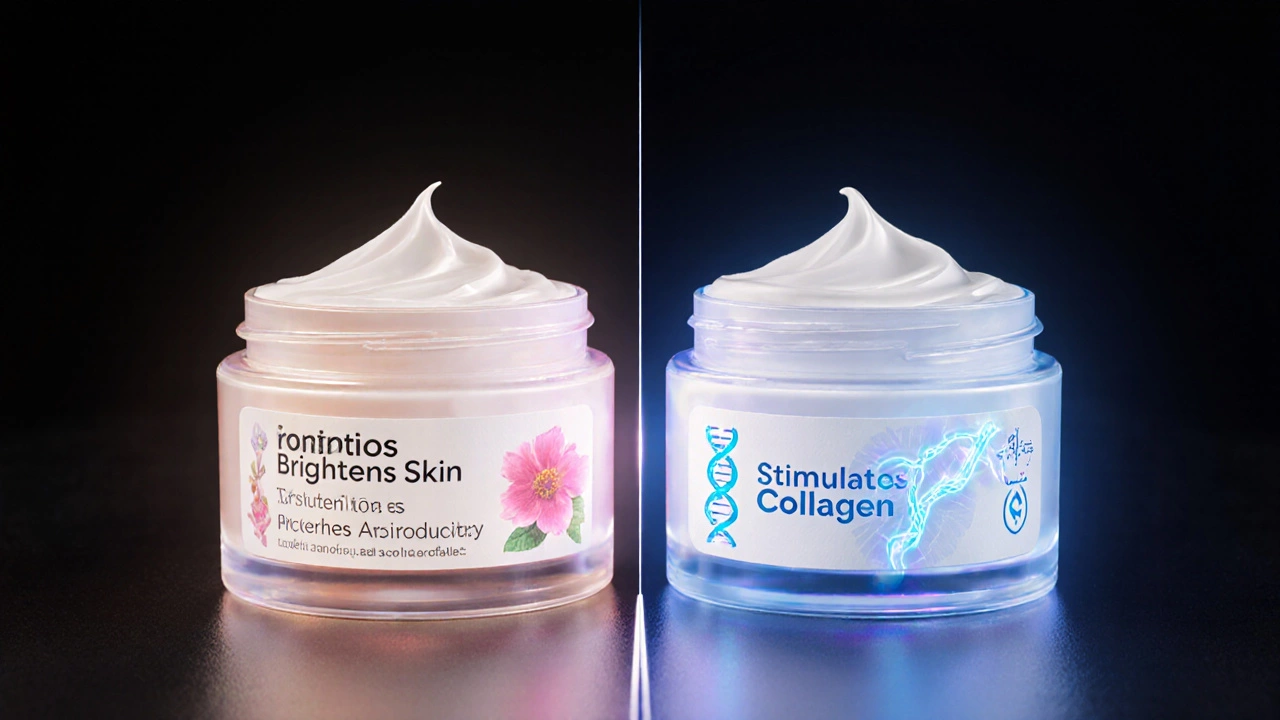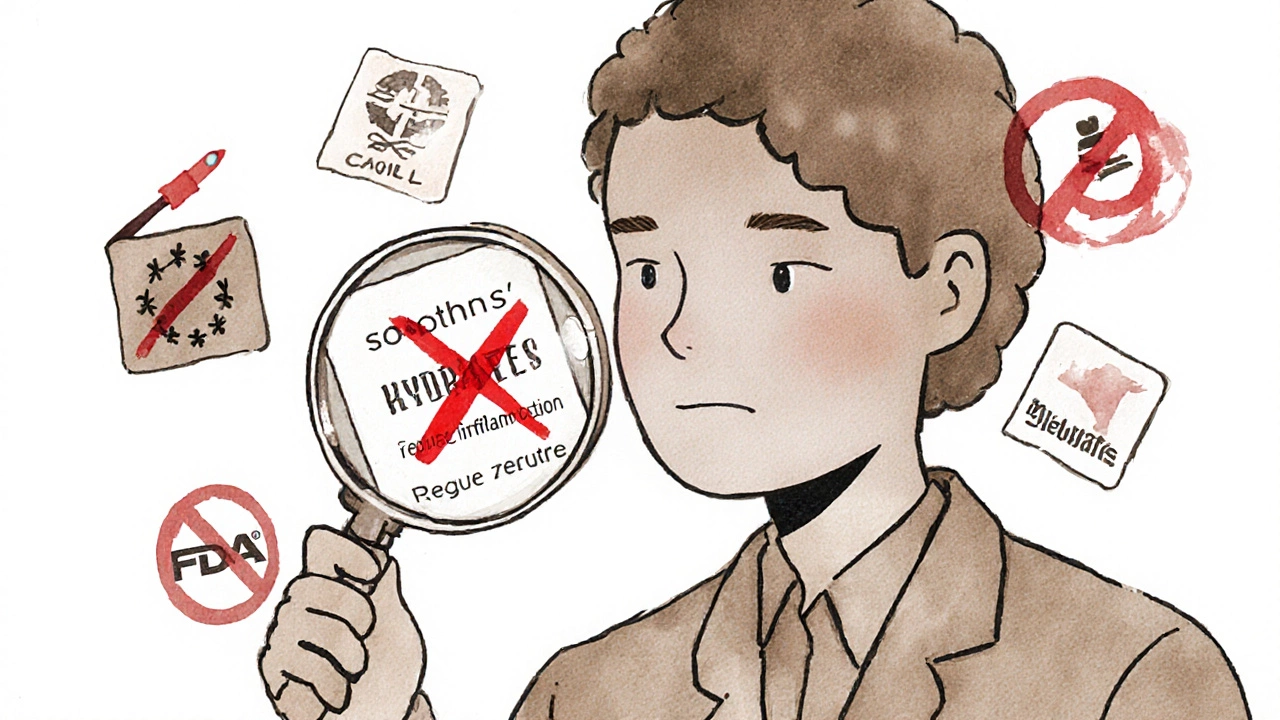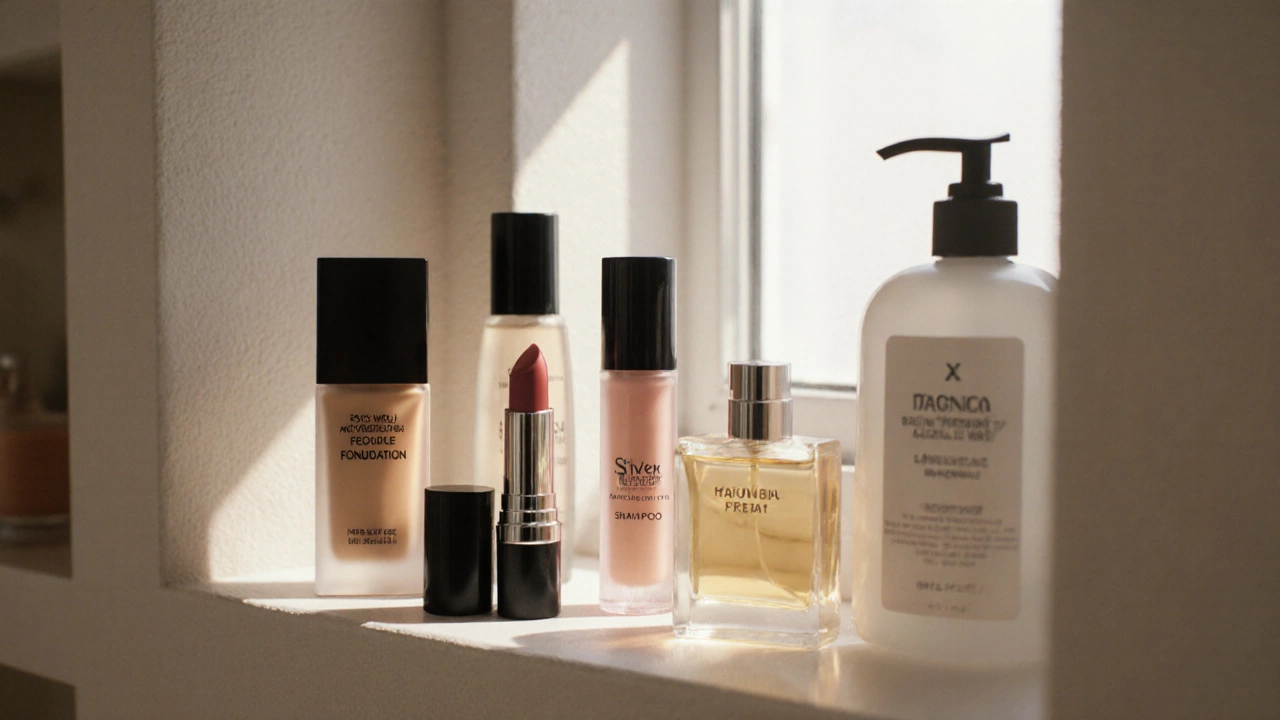Cosmetic Classification Checker
Is Your Product a Cosmetic?
Based on the article's rules: cosmetics are defined by intended purpose (cleaning, beautifying, altering appearance) NOT ingredients. Claims about medical treatment change classification.
Enter any claims made on packaging, website, or ads
Check for prohibited terms: treat, cure, heal, repair, regenerate, reverse, prevent, eliminateClassification Result
Ever stared at your bathroom shelf and wondered if that serum, lip balm, or body scrub is actually a cosmetic? You’re not alone. The line between a cosmetic and a medicine, or even just a moisturizer, is blurrier than you think. And it matters-because what’s classified as a cosmetic affects what claims you can make, what ingredients are allowed, and even how it’s tested and sold. In New Zealand, the U.S., the EU, and most countries, the rules are strict. But they’re also surprisingly simple once you know them.
It’s About Purpose, Not Ingredients
The biggest mistake people make is thinking cosmetics are defined by what’s in them. That’s not true. A product is a cosmetic based on what it’s intended to do. If its purpose is to clean, beautify, promote attractiveness, or alter appearance without affecting the body’s structure or function, it’s a cosmetic.
Take a face wash. It cleanses skin-that’s cosmetic. A cream that claims to reduce wrinkles by stimulating collagen production? That’s a drug. Why? Because it’s changing how your skin works. Same bottle, different claim. Same active ingredient, different legal category.
The U.S. FDA defines cosmetics as "articles intended to be rubbed, poured, sprinkled, or sprayed on, introduced into, or otherwise applied to the human body...for cleansing, beautifying, promoting attractiveness, or altering the appearance." The EU’s definition is nearly identical. New Zealand follows similar guidelines under the Cosmetic Products Group Standard.
What’s Clearly a Cosmetic?
Here’s what almost everyone agrees is a cosmetic:
- Makeup: foundation, lipstick, eyeliner, blush, mascara
- Skincare cleansers: facial washes, micellar water, makeup removers
- Moisturizers and lotions: body cream, hand cream, face moisturizer
- Shampoos and conditioners
- Deodorants and antiperspirants
- Nail polish and nail treatments
- Perfumes and fragrances
- Shaving creams and gels
- Hair dyes and styling products (mousse, gel, spray)
- Bath bombs and bubble baths
These don’t claim to treat, prevent, or cure disease. They don’t alter your biology. They sit on the surface. That’s the key.
Where Things Get Tricky
Some products live in the gray zone. Here are the most common confusions:
Anti-aging creams - If it says "reduces fine lines," that’s cosmetic. If it says "stimulates collagen regeneration" or "reverses signs of photoaging," that’s a drug. The wording changes everything.
Sunscreen - This one trips up even experts. In the U.S. and EU, sunscreen is regulated as a drug because it prevents skin cancer by blocking UV rays-a physiological effect. In New Zealand, sunscreen is treated as a cosmetic unless it makes medical claims like "prevents skin cancer." But if it has SPF 15 or higher, it’s still tightly controlled.
Teeth whitening products - Over-the-counter whitening strips? Cosmetic. But if they contain hydrogen peroxide above 0.1% in the EU, they’re restricted. In New Zealand, whitening toothpaste is cosmetic. Professional whitening gels sold by dentists? Those are medical devices.
Moisturizers with vitamins - A cream with vitamin C that says "brightens dull skin"? Cosmetic. One that says "reduces oxidative stress and repairs DNA damage"? That’s a drug claim. The ingredient doesn’t change. The claim does.

What’s NOT a Cosmetic?
These are clearly not cosmetics:
- Prescription creams for acne, eczema, or psoriasis
- OTC medications like hydrocortisone cream or antifungal lotions
- Hand sanitizers (they’re antiseptics, regulated as drugs)
- Medical devices: derma rollers, LED masks that claim to treat acne
- Supplements taken orally: collagen pills, biotin tablets
- Products that alter body structure: Botox, fillers, laser treatments
These products affect how your body functions or repairs itself. They’re not just making you look better-they’re changing how you work from the inside out.
Why This Classification Matters
Getting this wrong can cost you money, time, or even get your product pulled from shelves.
cosmetics face fewer regulatory hurdles. You don’t need clinical trials. You don’t need to prove safety the same way a drug does. But you also can’t say your product "treats" anything. No "reduces redness," no "heals broken skin," no "cures acne." Those are drug claims.
Companies that blur the line get hit hard. In 2023, a popular New Zealand brand had to recall its "anti-inflammatory face oil" because the term "anti-inflammatory" implied a medical effect. They rebranded it as a "soothing serum" and removed all references to inflammation. That’s the kind of change the law demands.
On the flip side, if you market a drug as a cosmetic, you’re breaking the law. And regulators don’t play around. The TGA in Australia and Medsafe in New Zealand have cracked down on brands using terms like "heals," "cures," or "therapeutic" on skincare labels.
How to Check Your Product
If you’re making or buying a product and aren’t sure, ask yourself these three questions:
- What does the product claim to do? (Check every label, website, and ad)
- Is it changing how your body works, or just how it looks?
- Would a doctor prescribe this to treat a condition?
If the answer to #2 or #3 is yes, it’s probably not a cosmetic.
When in doubt, look at how similar products are classified. Check the TGA (Australia) or Medsafe (New Zealand) databases. Look at how big brands like The Ordinary or CeraVe label their products. They’re experts at staying on the right side of the law.

What About Natural and Organic Products?
"Natural" doesn’t change anything. A product made from coconut oil, aloe vera, or tea tree oil is still a cosmetic if it only cleanses or beautifies. But if it claims to "detox your skin" or "balance your microbiome," that’s a red flag. Those are pseudoscientific drug claims dressed up as wellness buzzwords.
Organic certification (like BioGro or USDA Organic) is about farming methods. It has nothing to do with whether a product is a cosmetic. You can have a certified organic face wash that’s still just a cosmetic. And you can have a synthetic, lab-made moisturizer that’s also a cosmetic. The source doesn’t matter. The purpose does.
What’s Changing in 2025?
Regulations are tightening. The EU’s new Cosmetic Regulation (EC) No 1223/2009 is being enforced more strictly. New Zealand is aligning closer to EU standards. The FDA is cracking down on misleading claims in the U.S. And social media influencers promoting "miracle" skincare are getting fined.
More brands are hiring regulatory consultants before launching products. Why? Because a single mislabeled claim can trigger a recall, legal action, or loss of retailer shelf space.
Smart brands now test their marketing language with regulatory experts before launch. They avoid words like: treat, cure, heal, repair, restore, regenerate, reverse, prevent, or eliminate.
Instead, they use: improve, enhance, soothe, hydrate, brighten, smooth, nourish, protect, and condition. Those are safe.
Final Rule of Thumb
Think of cosmetics like clothing. You wear them on the outside. They change how you look, not how you feel inside. If it’s meant to change your biology-your hormones, your cells, your immune response-it’s not a cosmetic. It’s medicine.
So next time you pick up a bottle, ask: is this just making me look better? Or is it trying to fix something broken? The answer tells you everything you need to know.
Is sunscreen a cosmetic?
It depends. In the U.S. and EU, sunscreen is regulated as a drug because it prevents skin damage by blocking UV rays-a physiological effect. In New Zealand, sunscreen with SPF 15 or higher is treated as a cosmetic unless it makes medical claims like "prevents skin cancer." But even then, it’s subject to stricter safety rules than regular cosmetics.
Can a product be both a cosmetic and a drug?
Yes, but only if it has two distinct purposes. For example, an anti-dandruff shampoo that cleans hair (cosmetic) and treats dandruff (drug) is classified as a drug-cosmetic hybrid. In New Zealand, these are regulated as medicines under the Medicines Act. They need approval before sale.
Are serums with vitamin C cosmetics?
Yes, if the label says it "brightens skin tone" or "reduces dullness." But if it claims to "repair UV damage" or "stimulate collagen production," it crosses into drug territory. The ingredient doesn’t change-it’s the claim that makes the difference.
What happens if I use drug claims on a cosmetic?
You risk enforcement action. Regulators like Medsafe (NZ) or the FDA (US) can demand product recalls, issue fines, or ban your brand. In 2024, a New Zealand brand was fined $15,000 for claiming its moisturizer "reversed aging signs." They had to relabel everything and remove all ads.
Are essential oils considered cosmetics?
Only if used for fragrance or skin beautification. If you sell lavender oil and say it "reduces anxiety," that’s a drug claim. If you say it "adds a calming scent to your bath," it’s cosmetic. The same oil, two different legal outcomes.
